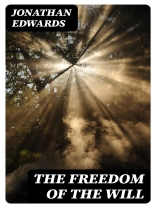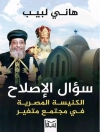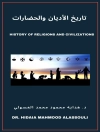In ‚The Freedom of the Will, ‚ Jonathan Edwards embarks on an intricate exploration of human volition, arguing for a theocentric understanding of free will that remains deeply rooted in Puritan theological traditions. Written in 1754, this seminal text delves into the nature of moral choice, positing that true freedom is not the ability to choose otherwise but rather the capacity to act according to one’s strongest inclinations, which are ultimately determined by divine sovereignty. Through a rigorous and systematic examination, Edwards employs an analytical prose style infused with rigorous logic and rich scriptural references, contributing to a compelling discourse on the interplay between grace and human agency, especially in the context of the Great Awakening that characterized early American religion. Jonathan Edwards (1703-1758), a prominent theologian, preacher, and philosopher, became one of the most influential figures in American religious history. Growing up in a Puritan milieu, Edwards was heavily influenced by the doctrines of Reformed theology. His formative experiences as a revivalist minister during a tumultuous period of spiritual fervor prompted him to contemplate the complexities of human freedom and divine providence, leading to this profound theological inquiry into the will’s nature. This book is highly recommended for readers intrigued by the philosophical and theological nuances of free will, especially within the context of Christianity. Edwards‘ meticulous arguments not only provide insight into early American religious thought but also challenge contemporary readers to reflect on their understanding of freedom and moral responsibility. ‚The Freedom of the Will‘ is an essential reading for anyone interested in theology, philosophy, and the intersections between faith and reason.
Über den Autor
Jonathan Edwards (1703–1758), a preeminent figure in American theology and philosophy, holds a central place in the intellectual history of the United States. He is best acknowledged for his profound work in the Christian ministry, contributing significantly to the religious movement known as the Great Awakening which swept through the British American colonies. A graduate of Yale College, Edwards’s scholarship is marked by his rigorous reasoning and eloquence, depicting a deep engagement with the Calvinist tradition. His masterpiece, ‚The Freedom of the Will‘ (1754), is revered as a cornerstone in the study of metaphysics and moral philosophy. In this seminal text, Edwards grapples with the intricate issues of free will, divine sovereignty, and human accountability, challenging the prevailing notions of libertarian free choice. Rather, he proposes that the will is determined by the greatest desire, a theory that has deeply influenced Reformed theology. His literary style typically involved intricate argumentation and a commanding use of metaphor, aiming to reconcile the revivalistic elements of his faith with the Enlightenment rationality. Edwards’s works continue to be studied and respected for their insight into human nature and their articulate defense of the Calvinist doctrine of determinism.




